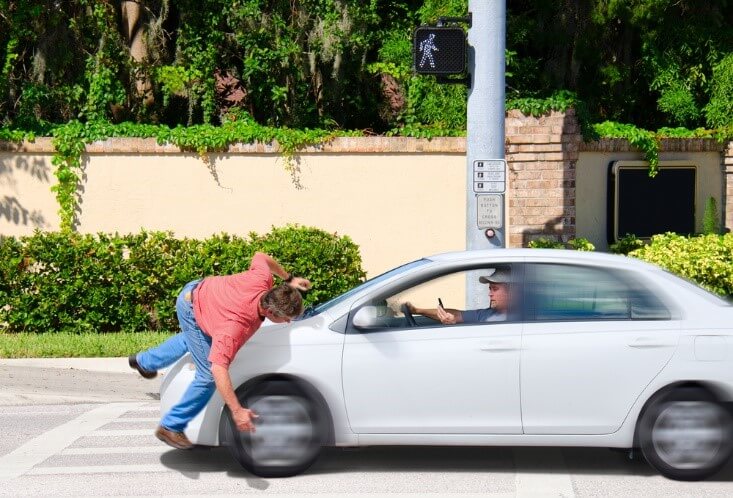It’s hard to say how you’ll react in the event of a car accident. A lot of things go through one’s mind at that time, not to mention the adrenaline that pumps through their veins. However, one action can have dire legal consequences. We’re talking about a hit and run.
A hit and run implies fleeing the scene of an accident, whether you’ve hit another car, a pedestrian, or just caused some property damage. Usually, when you’ve been involved in a crash, you’d have to stop and get out of the vehicle, identify yourself, help those in need, call the proper authorities, and whatever else the circumstances of the accident demand. If you don’t and continue on your way, you are breaking the law and will most likely have to deal with a hit and run accident lawyer.

What Are the Legal Consequences?
Every state considers a hit an run a criminal offense, though the penalties can vary. Moreover, some states consider a hit and run a felony in certain circumstances, while others may call it a misdemeanor if the accident hasn’t resulted in too much damage.
Typically, states consider it a felony when you flee a scene where a person was injured as a result of the collision. In this case, the penalties can be quite severe, such as a fine somewhere between 5,000 and 20,000 dollars, depending on the damages. Moreover, if a person sustained significant injuries, the perpetrator can also expect imprisonment time, even up to 15 years incarceration in some states.
If, however, the consequences of the accident are less severe, the hit an run may be classified as a misdemeanor, though the penalties here are nothing to ignore, either. In some state, a misdemeanor hit and run can result in a fine to up to $5,000 and even of to one year in jail.
Another thing that you should consider is the administrative penalties for hit and runs, which apply in most states. They are often reinforced through the Department of Motor Vehicles and, generally, result in the automatic revocation or suspension of your driver’s license. This action is taken regardless if the offense is a felony or a misdemeanor.
Some states impose a license revocation of up to three years. If the consequences of the hit and run are extreme, then you can expect a lifetime revocation of the driver’s license. The administrative penalties are additional punishment for hit and runs and often come together with other criminal sanctions.
Civil Consequences
So far, these are the penalties given by the state authorities, but there is also cause for civil penalties for hit and runs as well.
In short, if you have caused an accident which has resulted in damages (of any nature), the damaged party can ask for compensation, usually monetary to cover medical bills, repair property, or other purposes.
It’s possible to find yourself in this situation even if you don’t commit a hit and run. If you cause an accident, the injured party has the legal right to ask for compensation and may exercise that right. However, the matters are more delicate when you add the hit and run marker, and the amount you’ll have to pay will almost certainly increase. Some states even apply a treble damages rule on these cases, meaning the compensatory sum has to be triple the initial amount.
You can also expect to get in troubles with your insurance company as well. Many of them have a strict policy when it comes to hitting and runs, and they can cancel your policy if you’re found guilty. So any monetary compensation will have to come out of your pocket.
Conclusion
Drivers who have caused an accident have the legal obligation to remain at the scene until the authorities arrive and tell them otherwise. If not, they are committing a hit and run, and the punishment can be quite severe, though avoidable.